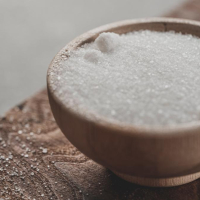
Read full review here
Photo by Faran Raufi on Unsplash
Key messages
• In adults, using LSSS instead of regular salt in food probably lowers blood pressure slightly. Adults using LSSS instead of regular salt probably have a slightly lower risk of non-fatal heart conditions, such as stroke or a sudden reduced blood flow to the heart, and death from heart disease.
• Using LSSS instead of regular salt probably also slightly increases the level of blood potassium (a mineral that keeps your heart beating at the right pace) in adults. This could be harmful for people who cannot effectively regulate the potassium in their bodies. Other evidence on safety is very limited.
• We are not certain about effects of using LSSS instead of regular salt on blood pressure in children, or whether using LSSS is safe in children.
• This evidence may not directly apply to people known to be at risk of high blood potassium, such as people with kidney problems or on certain medications.
What are low-sodium salt substitutes (LSSS)?
LSSS are products with less sodium than regular salt. Amounts of sodium in LSSS are lowered by replacing some of the sodium with potassium or other minerals. LSSS may help lower risks of using regular salt, since eating lots of sodium and not enough potassium contributes to high blood pressure. Globally, high blood pressure is the largest cause of preventable deaths, mainly because it causes stroke, acute coronary syndrome (ACS; where less blood flows to the heart), and kidney problems.
However, LSSS also has potential health risks. Using LSSS may lead to higher than normal blood potassium (hyperkalaemia), which causes problems with the heartbeat speed and rhythm, or can cause the heart to stop. These risks are greater in certain people, for example, those whose kidneys do not work properly to remove potassium.
What did we want to find out?
We wanted to find out what the effects of using LSSS instead of regular salt are on blood pressure as well as on events (stroke and ACS) and heart disease death. We also wanted to know if using LSSS instead of regular salt is safe, both in the general population and in people who are known to be at risk of high blood potassium levels.
We wanted to find this out for adults, children and pregnant women.
What did we do?
We searched five electronic databases and trial registries for studies that compared using LSSS with using regular salt. We compared and summarised the results of the studies and rated our confidence in the combined evidence, based on factors such as study methods and sizes.
What did we find?
We found 26 trials* involving 34,961 adults and 92 children. No studies in pregnant women were found. Most trials were undertaken in rural or suburban areas, with more than half done in low- and middle-income countries. Most trials included some people with high blood pressure (22); the largest included only people with a high risk of stroke. Seven trials were done in people at possible risk of high blood potassium. All trials excluded people where high potassium intake is known to be harmful, such as people with kidney problems or on certain medications. Nearly all trials (23) examined LSSS types where some sodium was replaced with potassium. The amount of sodium replaced in the various LSSS used in the trials ranged from very small (3%) to large (77%).
*Trials are types of studies in which participants are assigned randomly to two or more treatment groups. This is the best way to ensure similar groups of participants.
Main results
In adults, LSSS probably lowers blood pressure (diastolic and systolic) slightly when compared to regular salt. Using LSSS also probably lowers risk of non-fatal stroke, non-fatal ACS and heart disease death slightly when compared to regular salt.
However, using LSSS instead of regular salt probably also slightly increases the level of potassium in the blood.
Compared to regular salt, LSSS may result in little to no difference in high blood pressure and hyperkalaemia.
We could not draw any conclusions about effects of LSSS on blood pressure control, various heart disease events, death caused by stroke, lower than normal blood potassium (hypokalaemia), and other adverse events.
We could not draw any conclusions about the effects or safety of using LSSS instead of regular salt in children.
What are the limitations of the evidence?
We are moderately confident in the evidence. Our confidence was lowered mainly because of concerns about how some trials were conducted, and whether the results apply to the general population. We are not sure about the effects and safety of LSSS in children, pregnant women, people known to have a risk of high blood potassium, or those who do not have high blood pressure. We are also unsure about the effects of LSSS when used in foods not prepared at home. Further research may change these results.
How up to date is this evidence?
The evidence is up-to-date to August 2021.
